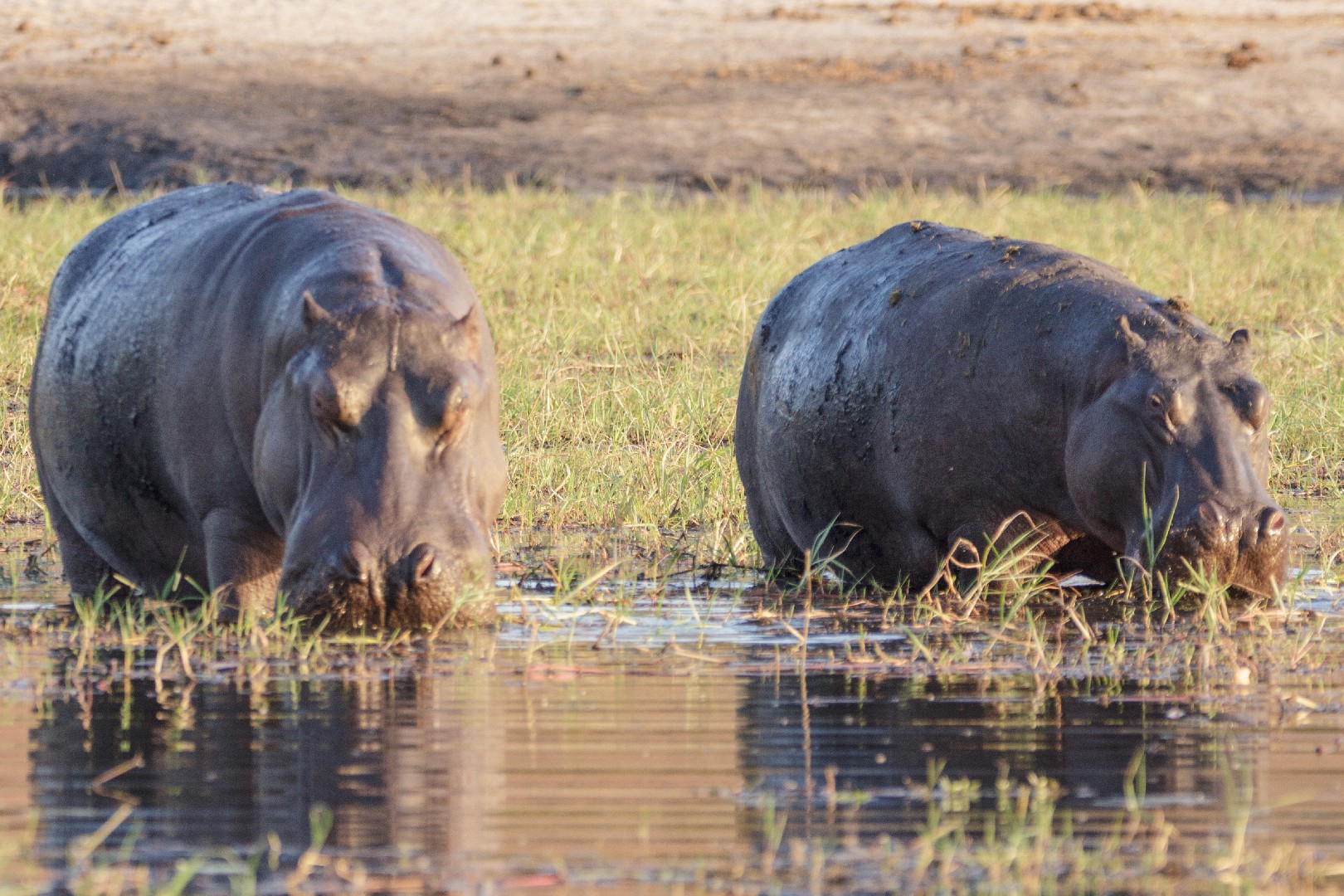Hippopotamus
A species of Hippos, Also known as Common hippopotamus, Hippopotami, Egyptian hippo, Egyptian hippopotamus Scientific name : Hippopotamus amphibius Genus : Hippos
Hippopotamus, A species of Hippos
Also known as:
Common hippopotamus, Hippopotami, Egyptian hippo, Egyptian hippopotamus
Scientific name: Hippopotamus amphibius
Genus: Hippos
Content
Description General Info
 Photo By Stephen Temple , used under CC-BY-SA-2.0 /Cropped and compressed from original
Photo By Stephen Temple , used under CC-BY-SA-2.0 /Cropped and compressed from original Description
Together with the pygmy hippopotamus and numerous extinct species, the hippopotamus forms the hippopotamus family (Hippopotamidae). Although they are called "horses", hippos are not closely related to the horses. Traditionally, they are placed in the order of the ungulates. According to current teaching, the whales are the closest relatives of the hippopotamus, which together with the paraphyletic ungulates form the taxon of cetartiodactyla.
General Info
Lifespan
40-50 years
Diet
Hippopotamus notably adhere to a herbivorous diet, primarily consuming vast quantities of grasses. Compellingly adapted for nocturnal grazing, they typically consume up to 35kg of grass nightly, supplemented occasionally by fallen fruit and vegetables.
Appearance
Hippopotamus is a large mammal with a barrel-shaped body and huge mouth. Its skin is almost hairless, thick, and grey, showing pinkish coloration in the belly and mouth. Small ears and eyes rest high on the head, and thick, short legs support its hefty bulk. The species lacks obvious sexual physical differences and age-related changes are minimal, with adults simply appearing larger and bulkier than younger individuals.
Behavior
Hippopotamus exhibits semi-aquatic behavior, spending significant time submerged in water to regulate body temperature. They are social animals, living in large, hierarchical groups in which males aggressively maintain territories. Females exclusively care for the young. Foraging occurs nocturnally, primarily on grasses. Uniquely adapted for their aquatic habitats, hippopotamus communicates via vocalizations and excretion of feces to mark territory.
Population
Stable